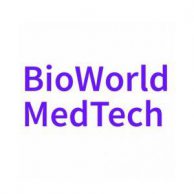BioWorld MedTech Features EpiXact® Launch

Reporter Liz Hollis profiles DZD plans for hospital acquired infection service
Day Zero Diagnostics Inc. (DZD), a Boston-based infectious disease diagnostics company that focuses on genome sequencing and machine learning, reported the launch of its Epixact service for hospital-acquired infection (HAI) outbreak investigations, its first commercial offering.
Currently, the majority of suspected outbreaks are identified through routine surveillance of patient medical records and lab reports. However, these methods take time, particularly when a quick response is needed. In addition, they can result in expensive and potentially unnecessary cautionary measures to control a suspected outbreak without the benefit of confirmation.
“Infection control teams can do a lot to trace epidemiology, but it can be difficult to definitively determine whether an infection was the result of transmission or not,” DZD co-founder and
CEO Jong Lee told BioWorld MedTech. “Decades-old molecular techniques like multilocus sequence typing and pulsed-field gel electrophoresis are sometimes employed but provide only low- level resolution.”
This new DZD offering is a high-resolution, whole genome sequencing-based method to help ascertain if two infections are clonal, he explained.
What makes the Epixact service different is that it is laser-focused on aiding hospital infection control teams when it comes to high-stakes intervention decisions. “We provide a consultative service with a rapid turnaround that informs important operating decisions specific to that team’s investigation. Rather than waiting weeks for a research report and results, leaders in charge of infection control receive a determination of pathogen relatedness within two to three days, enabling them to take action quickly using definitive information.”
The rise of antibiotic-resistant organisms has dramatically boosted the risks of HAIs, which already affect 4% to 5% of hospitalized patients in the U.S. and result in 99,000 patient deaths annually, the company said, citing research. Controlling HAIs is extremely important for health care facilities, as even a small risk of a persistent outbreak can lead to staff and patient screening, decolonization, patient isolation, monitoring measures and ward closures.
Looking ahead
When asked about rollout plans, Lee noted that the company had piloted the service with a number of institutions for the past year, taking feedback on their experience to refine the offering. “By doing this, we really gained an understanding of how this information would be used, and why factors like speed and simplicity are critical to the value we aim to provide.” Now, the company is working toward making the offering more broadly available across the country.
While the company is remaining focused on the U.S. for now, Lee said it would be open to collaborations abroad to expand in a compliant manner.
“We have an R&D program focused on the use of whole genome sequencing and machine learning for HAIs at scale. We are excited by the potential of this development work and hope to have updates on this program in the next year,” he responded when asked about near-term plans.
The company also is focused on Blood2Bac, a process for ultrahigh enrichment of bacterial DNA from complex clinical samples, as well as the MicrohmDB, a database that contains the whole genome sequences of pathogens along with their antibiotic resistance profiles. The dataset serves as a training resource for Keynome, the company’s machine learning algorithm for predicting antibiotic resistance profiles from genomic sequences.
Harvard connection, funding
“DZD is a spinout from the lab of Dr. Doug Kwon, an infectious disease physician and scientist at Massachusetts General Hospital,” Lee told BioWorld MedTech. He added that a group of Harvard-affiliated researchers and entrepreneurs founded the company in 2016, with an eye toward modernizing infectious disease diagnostics.
“We are developing a new class of diagnostics using whole genome sequencing and machine learning, particularly targeted at severe clinical infections that are made more dangerous due to antibiotic resistance,” he added.
The company already has attracted investor interest. In January, it reported the completion of a $8.6 million series A round, which was led by Triventures. (See BioWorld MedTech, Jan. 24, 2019.) Existing investors, including Sands Capital Ventures and Golden Seeds, also took part.
At the time, the company said it anticipated using the funds to speed up the prototype development of its sample preparation technology and computational approach, as well as enable the introduction of DZD Lab Services, a suite of sequencing-based diagnostic services.